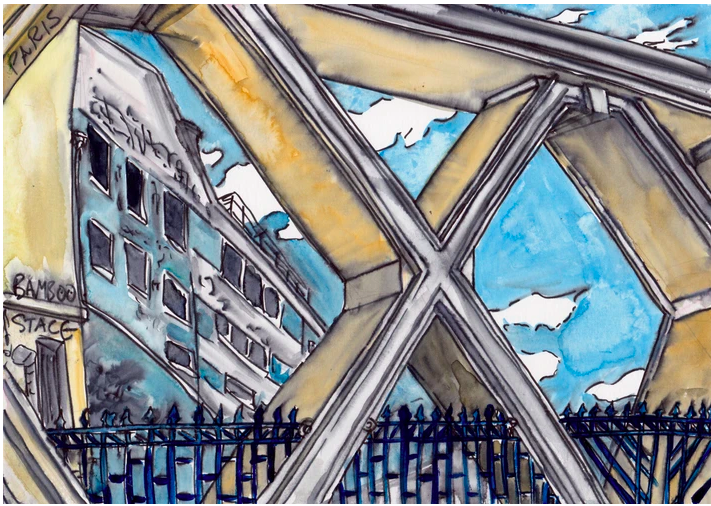The Rassemblement National? A party outside the "republican arc", according to France's president Emmanuel Macron. A Trojan horse for Russian interests in France, echoes prime minister Gabriel Attal. The certainty of a "new Marxism", ventures economy minister Bruno Le Maire. With three months to go till the European elections, the presidential camp is stepping up its attacks on the RN. The far-right party has been its main political rival since 2017 and is now systematically given as the favourite in opinion polls, with a large lead over the Macronist Renaissance grouping.
In 2019, the two blocs finished neck and neck, with the same number of seats in the European Parliament. Five years on, the settled narrative is of inevitable victory for Marine Le Pen's party. For many observers, the only remaining question is by how much. That outlook is supported by several facts: Emmanuel Macron's unpopularity; the successful debut of the RN's new president, Jordan Bardella, who also heads the party's list in the upcoming election; ongoing divisions on the left; and an agitated public mood shaped by inflation and falling purchasing power.
The RN was runner-up in the last presidential election and is better represented than ever in the National Assembly, with almost 90 of the 577 deputies. It is the main beneficiary of the current woes. Public opinion seems unmoved by accusations of amateurism, the legal troubles of several of the RN's leading figures, its mediocre record at European level, or even the party’s longstanding affection for the regime of Vladimir Putin. For its part, the RN's main strategy is to normalise its image as much as possible and to keep a low profile. It avoids taking risks while taking advantage of its rivals' missteps.
The presidential camp seems to have accepted this normalisation. With a few rare exceptions, it has refrained from putting the RN on moral trial, or from pointing to the racism and antisemitism of its founding leader Jean-Marie Le Pen.
It prefers to warn against the RN's economic programme, likened to that of the "far left", and the inevitable "Frexit" in the event of an RN victory – even though the party has officially renounced the notion of leaving the European Union. Appointed prime minister in January at just 34, Gabriel Attal is more popular and a harder-hitter than the president, and was seen as an anti-Bardella weapon – the RN's president-candidate is 28 years old. But between managing a bitter farmers' strike and announcing severe budget cuts to reduce the deficit, he has not had time to open hostilities with the RN.
For the time being the president remains in command, and he is taking advantage of international events. Macron has made French and European "sovereignty" the new watchword of his presidency, and has recently taken a tougher line with Moscow. This diplomatic posture is also for domestic consumption, allowing his camp to emphasise Marine Le Pen's links with Putinist circles.












